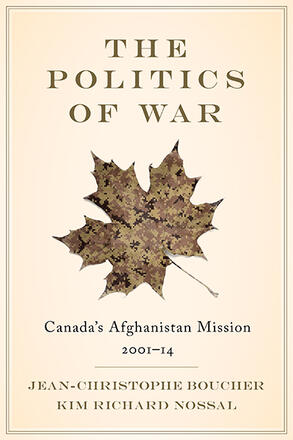
The Politics of War
Canada’s Afghanistan Mission, 2001–14
The Politics of War analyzes the impact of political elites, Parliament, and public opinion on Canada’s mission in Afghanistan to demonstrate how much of Canada’s involvement was shaped by the vagaries of domestic politics.
Description
When Canada committed forces to the military mission in Afghanistan after September 11, 2001, little did Canadians foresee that they would be involved in a war-riven country for over a decade. The Politics of War explores how and why Canada’s Afghanistan mission became so politicized. Through analysis of the public record and interviews with officials, Boucher and Nossal show how the Canadian government sought to frame the engagement in Afghanistan as a “mission” rather than what it was – a war. This book analyzes the impact of political elites, Parliament, and public opinion on the conflict and demonstrates how much of Canada’s involvement was shaped by the vagaries of domestic politics.
Awards
- Short-listed, CPSA Prize in International Relations, Canadian Political Science Association 2019
Reviews
Although written by political scientists, this book is very accessible to students of the campaign in Afghanistan—whether they be academics, military personnel, or the general reader. It is highly recommended for the view of the “home game” it provides and as a reflection of the military “away game” being played out overseas.
- Ken Reynolds